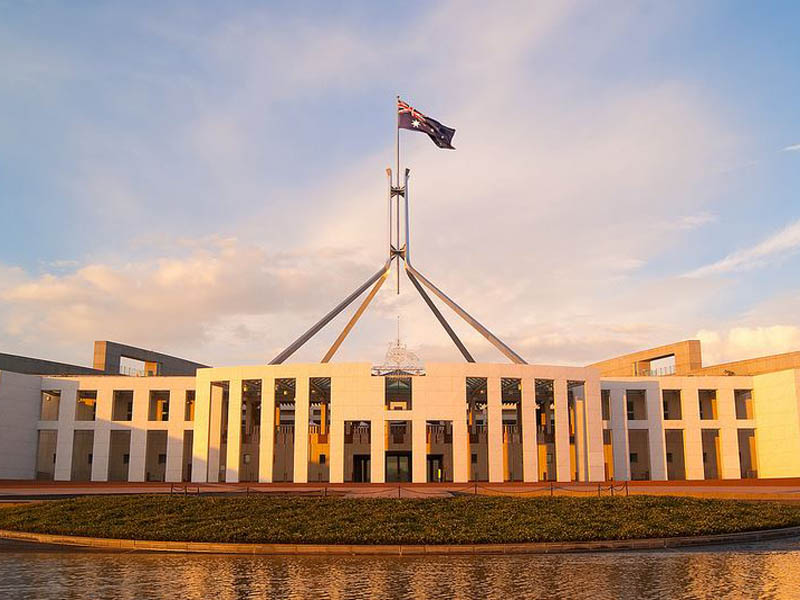Australia’s highly controversial ‘encryption busting’ laws pose a significant economic threat to local and multinational businesses, some of which have estimated the hit to be in the billions of dollars, according to the first economic analysis of the new powers, which have been in force for more than two years.
The analysis also found there may not have been sufficient consideration of the indirect economic costs of the laws by the government, which has refused to release its regulatory impact statement to the independent researchers.
The Telecommunications and Other Legislation Amendment (Assistance and Access) Act, or TOLA, passed in 2018 with bipartisan support. It allows law enforcement and agencies to compel a wide range of communication providers to provide access to encrypted data.
The government insists the law is necessary to prevent serious crimes, but it has been widely criticised by experts as undermining encryption and a threat to the local tech sector.

No economic modelling was done on the laws, however, until this year when global non-profit open internet group the Internet Society commissioned a team of independent researchers to assess the impacts.
The group released the report on Tuesday based on interviews and an anonymous survey of some of the communications providers who may be compelled by Australian law enforcement and agencies to provide access to encrypted data.
The report found TOLA has “the potential to result in significant economic harm for the Australian economy and produce negative spillovers that will amplify that harm globally”.
The authors said the economic harms are difficult to quantify for several reasons, including the secrecy provisions around the use of the law and the fact many firms are not aware of them.
But the economic impact is measurable in the multiple billions of dollars, will not be limited to the ICT sector, and is likely to be primarily realised in coming years, according to the report.
One company surveyed by the researchers said the introduction of TOLA had cost it a $1 billion contract in 2019 because the buyer was concerned by the risks created by Australia’s laws. The lost contract and the pandemic that followed severely curtailed the firm’s ability to do business off shore, it said.
The local sector and multinational tech companies warned of these consequences during consultation on the legislation, but the researchers said it appeared little consideration was given to the indirect costs of the law.
Law and Economic Consulting Associates (LECA) was commissioned by the Internet Society to assess the economic impact, and their research included investigating how much the government had considered it in drafting the law.
LECA sought the government’s regulation impact statement that accompanies legislation and cross department correspondence about it. But the impact statement was declined on Cabinet in confidence grounds – unusual for such a document – and FOI requests revealed there was no correspondence on regulation impact between the two departments responsible for the legislation, Home Affairs and Communications.
LECA Director Mark Loney said the lack of correspondence was “remarkable” and showed there was a failure to consider the economic impact of the laws beyond the direct costs communications providers might incur when assisting law enforcement and agencies under TOLA.
Mr Loney, who worked for more than two decades at the Department of Defence and ACMA before consulting, told InnovationAus the government did not necessarily have the “full picture” when it decided to go ahead with the laws, despite widespread opposition from industry and encryption experts.
“I think government clearly was satisfied in 2018 when it introduced the legislation that we should be doing this — the benefits outweigh the costs. In retrospect I think that was not a well founded judgement,” Mr Loney said.
“Or if it is well founded they haven’t produced the evidence to support it. We asked them to release it and they decided not to.”
In conducting the research, Mr Loney said several firms reported reputational damage and losing business because of the law, and they expected the affects would continue over time.
“This is the thrust of the report,” he said.
“[It] is that over time, you reduce the potential for innovation and opportunity. You have this sort of drag on your economic growth on commercial opportunities for companies, on technology innovation, all those sorts of things.”
The report concludes TOLA has also increased business uncertainty and created an indirect threat to trust of all digital services including the internet.
Mr Loney said it was unlikely the controversial legislation would be repealed. Labor has proposed amendments to the legislation that would see more oversight and a smaller scope of use. The Coalition has also committed to the findings of the landmark Richardson review of national security laws, including the introduction of a whole new Electronic Surveillance Act.
That process will take years but offers a chance to address some of the shortcomings of TOLA, according to Mr Loney.
“I would hope the government would reconsider [parts] of the legislation in the light of our estimate of the potential costs, and then compare that to what they see as the benefits.”
Do you know more? Contact James Riley via Email.

